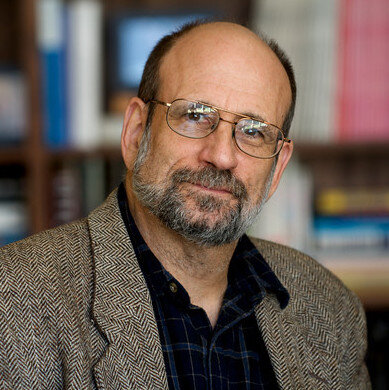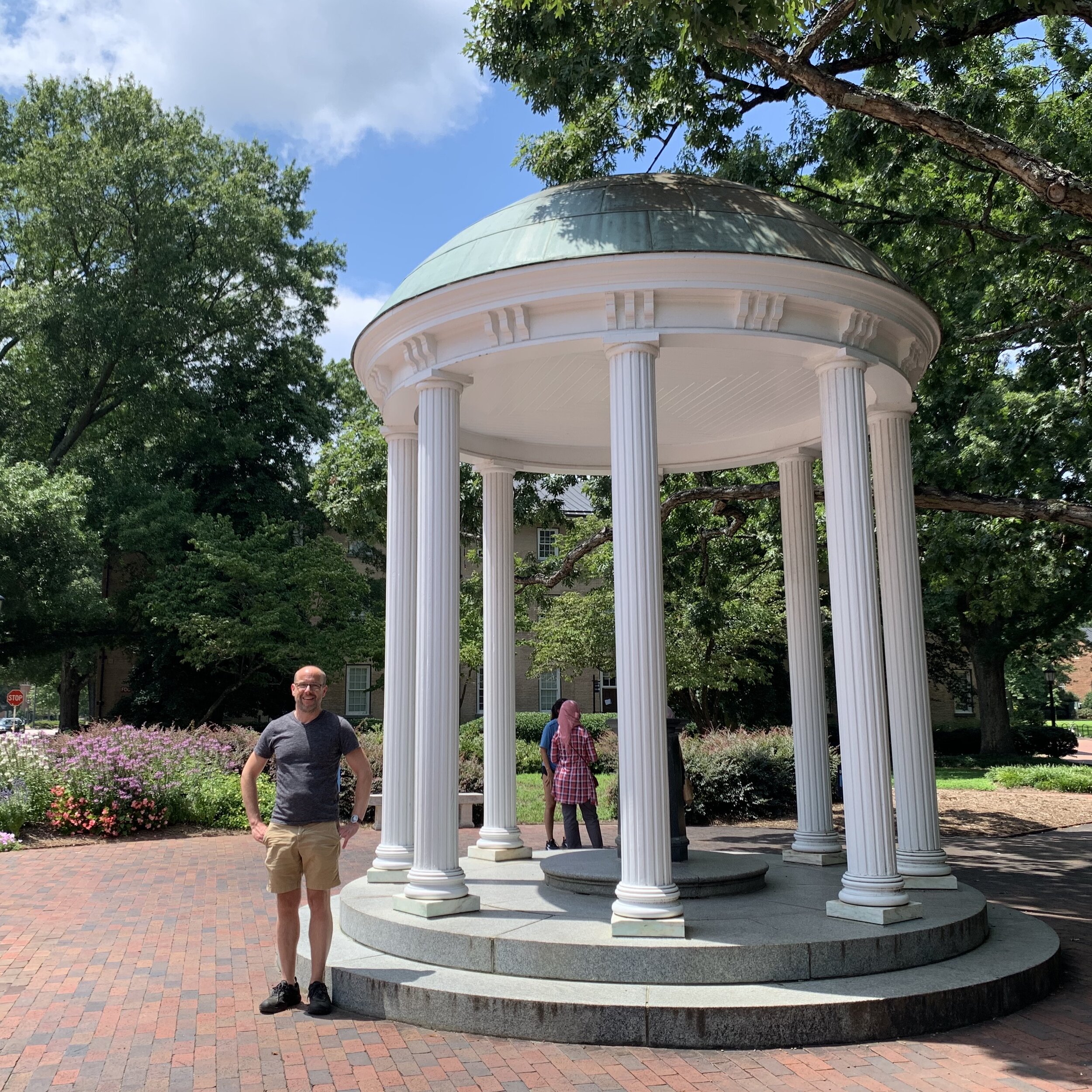In the fall of 1989, I arrived as a freshman at the University of North Carolina at Chapel Hill with dreams of an eventual career in journalism or the foreign service. I was particularly fascinated by Russia—Mikhail Gorbachev was then pursing the reforms that would end in the Soviet Union’s collapse—but the Russian history course I wanted to take was already closed. So on a whim, I registered for Professor Peter Iver Kaufman’s Religion 27: Introduction to the History of Christian Traditions.
Professor Kaufman was a whirlwind of energy, and I was blown away. It was a large lecture class, with auditorium-style seating, and he fairly leaped from place to place, often calling on students at random.
Throwing caution to the wind, I signed up for the Honors section, which involved meeting with him in a small weekly recitation. There he was no less energetic, spilling much red ink on my papers. I still laugh in recalling his marginal note when I misspelled the verb tailor as “taylor”: “As in James?” he wrote, referencing one of Chapel Hill’s favorite sons.
But the best part of the class was the way Professor Kaufman made bygone episodes in the history of Christianity come alive through storytelling.
One quirky example has always stuck with me. It came when he was lecturing on the Donatists, the faction of militant purists who accused some of the early Christian bishops of being too lax in their compromises with the state.
The Donatists’ most famous opponent was Saint Augustine, who was determined to show that they, not the Catholics, were the morally reprehensible ones. In a letter to Boniface, a Roman general, he recounted the treatment of Maximian, a Catholic bishop, by a violent Donatist mob. After beating Maximian savagely, they threw him down from a high tower.
Fortunately, according to Augustine, Maximian landed on “a heap of something soft.” At this point in the narrative, Professor Kaufman paused over Augustine’s words. “A heap of something soft,” he repeated, with a mischievous grin.
Maximian had landed in a pile of manure. In all likelihood, it was a pile of human excrement, as the townspeople were accustomed to defecating at the base of the tower. But in recounting the incident to an imperial official, Augustine had euphemized—softened—his language: Maximian landed in “something soft.”
Why did this so capture my eighteen-year-old imagination? Perhaps it appealed to my juvenile sense of humor. But on a deeper level, it revealed to me how historical texts are never sterile but are mixed with complicated human motives. Even the church’s saints like Augustine were not above posturing, exaggerating, obfuscating, and, yes, euphemizing, as the situation demanded. Even the saints sometimes wallowed in the dung.
Before the end of that semester, I was hooked on the history of Christianity. In Professor Kaufman’s class, I fell in love with dissecting historical texts for the surprising stories they reveal.
I still remember the excitement I felt sitting in a study carrel on the eighth floor of UNC’s Davis Library and realizing that I could, with diligent effort, make sense of dense primary sources by Augustine and other greats. (When I was done highlighting the readings in the photocopied course pack, I suspect there was more yellow on the pages than white.)
It takes a great teacher to light that sort of fire in an undergraduate. Not surprisingly, Professor Kaufman has received numerous honors over the years, including the 2016 Distinguished Alumnus Award from his graduate alma mater, the University of Chicago Divinity School. He’s still teaching today in an endowed chair he accepted at the University of Richmond’s Jepson School of Leadership Studies after his retirement from UNC.
I had other great teachers at UNC—its Department of Religious Studies surely had some of the best professors in the nation—but I credit Peter Kaufman with first drawing me into the program. As a professor myself, I’ve tried to emulate his model, recognizing that the flash of inspiration for a student can come unexpectedly, even in a heap of something soft.
© 2021 by Peter J. Thuesen. All rights reserved
Bibliographical Note
Augustine’s “heap of something soft” euphemism occurs in De correctione Donatistarum (ep. 185), circa 417, in Political Writings, ed. E. M. Atkins and R. J. Dodaro (Cambridge: Cambridge University Press, 2001), p. 190. See also the discussion in Brent D. Shaw, Sacred Violence: African Christians and Sectarian Hatred in the Age of Augustine (Cambridge: Cambridge University Press, 2011), p. 527n89, 529.

